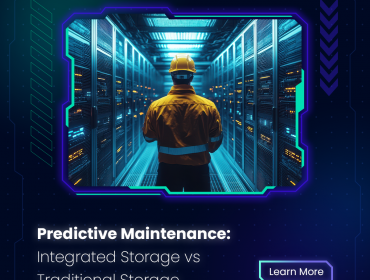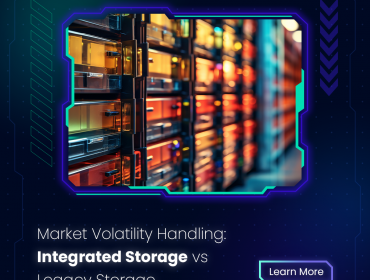The exponential growth of data in today’s world has made it necessary for businesses to have an efficient data management system in place. With the advent of new technologies, the need for a unified data storage system that can handle all types of data has become increasingly important. This is where Unified storage comes into play. Unified storage is a centralized storage solution that allows businesses to store all types of data in one place, reducing complexity and costs while providing enhanced security and accessibility. In this article, we will discuss why Unified storage is the future of data management and its benefits.
What is Unified Storage?
Unified storage is a storage architecture that provides a centralized platform for businesses to store all types of data. Unlike traditional storage systems that require separate storage silos for different data types, Unified storage allows businesses to store structured, semi-structured, and unstructured data in a single, centralized storage system. This results in better data management, increased storage efficiency, and improved data accessibility.
Benefits of Unified Storage:
- Cost Reduction:
Unified storage reduces costs in various ways, such as:
- Reduced Storage Hardware Costs: Since all data is stored in one place, businesses can save on hardware costs, reducing the need for multiple storage systems.
- Lower Management Costs: With a centralized management console, businesses can manage their data storage more efficiently, reducing management costs.
- Lower Energy Costs: Unified storage uses a centralized system, reducing the need for multiple storage systems, which in turn reduces energy consumption.
- Reduced Data Center Footprint: Unified storage allows businesses to store all data in one place, which reduces the need for multiple data centers, saving costs associated with data center infrastructure.
- Simplified Management:
Unified storage provides a centralized management console that allows businesses to manage all their data storage needs from one place. It simplifies administration and reduces complexity, leading to better storage efficiency.
- Automated Data Tiering: Unified storage automatically classifies data according to its importance, allowing businesses to manage their storage resources more efficiently.
- Reduced Administration Complexity: Since all data is stored in one place, businesses don’t need to manage multiple storage systems, reducing administration complexity.
- Improved Storage Efficiency: Unified storage’s centralized management console allows businesses to manage their storage more efficiently, resulting in improved storage efficiency.

- Enhanced Data Security:
Unified storage provides enhanced data security through the following:
- Secure Data Encryption: Unified storage uses secure data encryption to ensure data is protected against unauthorized access.
- Role-Based Access Control: Unified storage allows businesses to restrict access to data based on the user’s role, ensuring that only authorized personnel can access data.
- Data Backup and Recovery: Unified storage provides data backup and recovery capabilities, ensuring businesses can recover data in the event of a data loss.
- Compliance and Governance: Unified storage provides compliance and governance features, ensuring that businesses can comply with regulatory requirements.
- Better Data Accessibility:
Unified storage provides better data accessibility by:
- Faster Data Access and Retrieval: Unified storage’s centralized system allows for faster data access and retrieval, leading to improved productivity.
- Improved Data Availability: With a centralized storage system, data availability is improved, reducing the risk of data loss and downtime.
- Simplified Data Sharing: Unified storage allows businesses to share data easily, leading to improved collaboration.
- Seamless Data Migration: Unified storage allows businesses to migrate data seamlessly between storage systems, reducing downtime and improving data availability.
- Scalability and Flexibility:
Unified storage is scalable and flexible, allowing businesses to adjust their storage capacity according to their needs. Unified storage supports multiple protocols and can integrate with cloud storage, making it easier for businesses to scale up or down their storage capacity as required.
- Easy Scalability: Unified storage can easily scale up or down storage capacity as required, providing businesses with flexibility in managing their data storage needs.
- Supports Multiple Protocols: Unified storage supports multiple protocols such as iSCSI, NFS, CIFS, and FC, allowing businesses to use the same storage system for different applications.
- Integration with Cloud Storage: Unified storage can integrate with cloud storage, allowing businesses to store data both on-premises and in the cloud, providing additional flexibility and scalability.

Conclusion:
In conclusion, Unified storage is the future of data management. It provides a centralized storage solution that can handle all types of data, reduces costs and complexity, enhances data security and accessibility, and scales seamlessly to meet the growing demands of businesses. With Unified storage, organizations can streamline their data management processes, improve data quality and availability, and gain insights into their data to make better business decisions. So, if you’re looking for a future-proof data management solution, look no further than Unified storage.










